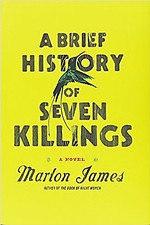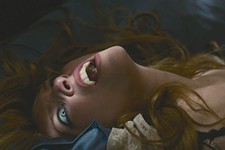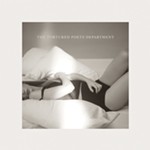The Year in Books
'Freedom,' 'Finkler,' and the 'Kids' of America
By Kimberley Jones, Audra Schroeder, Wayne Alan Brenner, Cindy Widner, Jay Trachtenberg, James Renovitch, and Richard Whittaker, Fri., Jan. 7, 2011
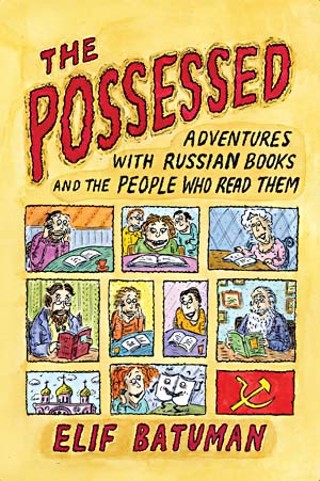
I didn't read Jonathan Franzen's Freedom (Farrar, Straus and Giroux); I inhaled it, giddy with its untidy sprawl and tart, doomy observations about American life. And speaking of: When a colleague and I kicked a conversation around about the book a while back, she accidentally called it America and I didn't even notice. Yup, it had a vast, scrolling scope fit for a nation made of disparate bits, not a unified whole, and, yup, it was the book on the tip of everyone's tongue (in this country, and Oprah's, at least). And yet: Its champions wanted to call it definitive, which is dumb, and its detractors cried foul for being too "exclusive," which is just as dumb. More to the point, Freedom represented Franzen's America, and it was a marvelously absorbing place to visit, full of ecoterrorists, war profiteers, horny suburban moms ... well, and horny teens, horny middle-aged preservationists, horny rockers, et al.
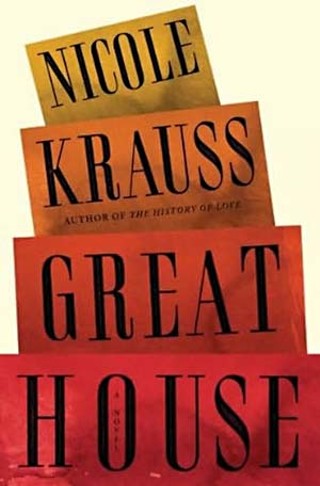
Other books I loved this year traveled farther afield, as in a trio of nonfiction treats: Ben Macintyre's Operation Mincemeat: How a Dead Man and a Bizarre Plan Fooled the Nazis and Assured an Allied Victory (Crown), an almost indecently entertaining distillation of British World War II spy games, starring a 007 plucked from thin air (and featuring a cameo performance by future Bond brainfather Ian Fleming); Elif Batuman's The Possessed: Adventures With Russian Books and the People Who Read Them (Farrar, Straus and Giroux), a peppery, one-woman trumpeting of literature, learning, and language (too neglected, the lot); and Judith Shulevitz's The Sabbath World: Glimpses of a Different Order of Time (Random House), a quieting kind of book that nevertheless blew my mind six ways to Sunday.
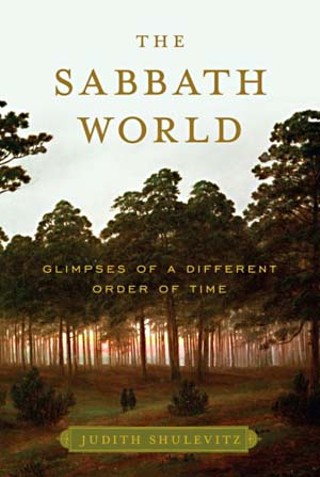
Back on the fiction front, and as close to home as you can get, was The Surf Guru (Riverhead Books), Austin author Doug Dorst's wildly whizzing and very finely written first short story collection. And finally, I was fully in love with Nicole Krauss' Great House (W.W. Norton & Company) for three-quarters of the book, until I snagged on a chapter that almost made me throw the book away in distaste. It was only in my post-reading reflection – you know, the kind that catches you in the shower midsoap or startles you awake when you were just nudging sleep – that I realized the chapter, thick with shame and self-disgust (more potent vibrations on the emotional spectrum even than love, I think), touched a raw nerve with me. It wasn't distaste but rather the itchy discomfort of catching a sidelong glimpse in the mirror and thinking, "Is that what I really look like?" If it's a universal truth that we read to find some reflection of ourselves, I suppose we should be prepared to not like what we see. But books aren't just there to soothe – they're meant to rattle and galvanize, too, and Krauss' book did all of the above for me. – Kimberley Jones
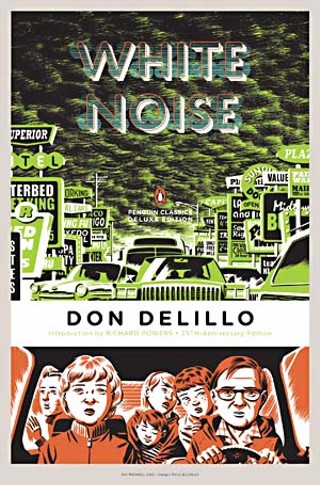
It was a year of past and future tenses. The 25th anniversary edition of Don DeLillo's White Noise (Penguin Classics) got a new cover (by Michael Cho), but its story of technological and toxic confusion is still spot-on – especially in the wake of this summer's BP spill – as is Jack Gladney's generational lament, "I feel sad for people and the queer part we play in our own disasters."
DeLillo's black comedy was rebroadcast via two forward glances: Charles Yu's excellent first novel, How To Live Safely in a Science Fictional Universe (Pantheon), and Gary Shteyngart's third, Super Sad True Love Story (Random House). Both balance heartbreak and future-panic with humor; both will be made into movies, no doubt.
For the ladies, Julie Klausner's I Don't Care About Your Band (Gotham) served as a cringe-worthy but honest field guide, the Sex and the Single Woman for the tangled back alleys of the Interwebs. Anyone who posits Kermit the Frog as a model of modern masculinity knows how to reach a certain generation of gals who have no doubt encountered a man-child in the wild.
And then there was Patti Smith's backward glance Just Kids (Ecco), one of the disaster-free tomes of the year. It's a pitch-perfect eulogy to her longtime friend, photographer Robert Mapplethorpe, and her strong poetic compass saves it from ever feeling too serious or boring or memoirish. You just feel like she's telling a story in an empty room, so each page swims by, a muted New York City in the late 1960s into the louder 1970s. Their relationship and love, though unconventional, is never overanalyzed or overwrought. She describes the shoot for the cover of Horses with ease: "I had in mind a look. He had in his mind the light. That is all." – Audra Schroeder
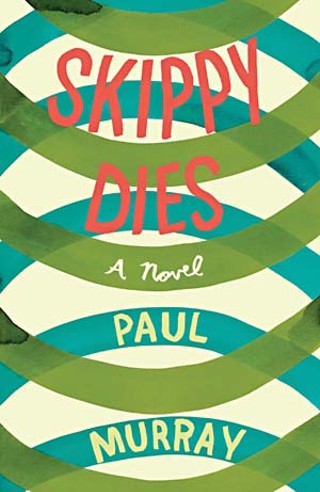
Among the text-only works of fiction that kicked my who-has-time-to-read? ass in a pleasurable fashion this year were Paul Murray's imposingly thick Skippy Dies (Faber and Faber), about the tragedy-amplified misadventures among the students, teachers, and administration at a Catholic prep school in modern-day Dublin; The Book of Harold: God's Illegitimate Son (Dalton Publishing), a warped coming-of-messiah tale by Austin's own Owen Egerton; and William Gibson's crystalline Zero History (Putnam Adult), as fierce and focused as his Pattern Recognition, the first of the loose trilogy of which this was the third.
Of special note was Marc Majcher's Twenty Four Game Poems (self-published, available at www.lulu.com), in which the local author moved eclectic role-playing scenarios to areas of insight and reflection that many writers only hope to reach; also, the online delights of www.fictioncircus.com, purveyors of video-illustrated screeds, trenchant literary commentary, and excellent short prose in frequent bursts.
In the graphic-novel firmament, the brightest stars (although often with the darkest lights) were Daniel Clowes' Wilson (Drawn & Quarterly); Chris Ware's Lint, aka ACME Novelty Library #20 (Drawn & Quarterly); Dash Shaw's psychedelic BodyWorld (Pantheon); and the first two issues of hentai bestial hijinks called I Want You (Pigeon Press) by Lisa Hanawalt.
Because I'm rather a fact-based organism, nonfiction in the form of Hugh Raffles' Insectopedia (Pantheon), featuring essays predicated on bugs and the weird subcultures around the studies and exploitations of them, was a well-researched work of enlightenment and fascination. And can there be any finer periodical compendium of the odd corners of culture than the quarterly Cabinet magazine, straight outta Brooklyn but concerned with all the marvels and minutiae of the world? Only Andrew Losowsky of Stack America might know for sure. – Wayne Alan Brenner

The image of a year bookended by rock & roll memoirs – and not just any rock & roll memoirs, mind you, but those of Keith Richards and Patti Smith, his softer, artier doppelgänger and huge fan – is irresistibly sweet: I picture them standing at either end of 2010, guarding the gates of rock like twin titans or a pair of trickster ravens. With all due respect to Richards' boat-rocking tell-all, the year pretty much peaked for me in January, with the publication of Smith's Just Kids. Having gone through the requisite idol killing and resurrecting with Smith, I'm not sure what I was expecting when I opened the book – certainly not the sustained, quiet brilliance I found. Just Kids is lovely but not showy; its unadorned, often funny prose pulled me into Smith's perfect bohemia – New York City of the late Sixties and early Seventies, where she and Robert Mapplethorpe shacked up, broke out, and became eternally entwined – and I never wanted to leave. I failed to jump on the Freedom bandwagon, possibly because I experienced Smith's memoir the way others went at Franzen's novel: caught up, couldn't wait to get back to it, pulled along by stories of real people Smith writes as true characters. The year's other highlights were unexpected and touching – T Cooper's The Beaufort Diaries (Melville House), the adventure of a polar bear in L.A., illustrated by Alex Petrowsky – or dazzling – Marianne Stockebrand's long-awaited Chinati: The Vision of Donald Judd (Yale University Press), an art book both stunning and comprehensive and one that really needed to exist. As has been the case so often in my life, though, nothing kept hold of me like Smith did. When she won the National Book Award for nonfiction, I was thrilled but as surprised as anyone. She's always been the dark horse. – Cindy Widner
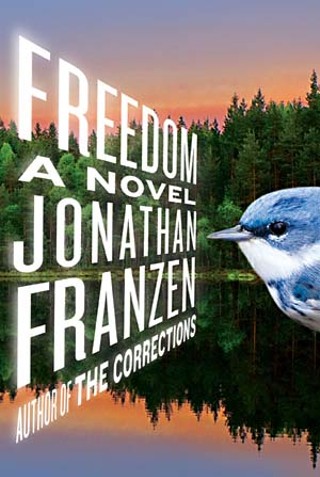
As someone who loves to read, particularly modern fiction, Jonathan Franzen's doorstop of a novel, Freedom, was an utterly sumptuous literary feast, one that was hard to put down. Examining a dysfunctional Midwestern family, both as a unit and individually, against the backdrop of the George W. Bush era, it is splendidly crafted, endlessly insightful, and darkly humorous. Hands down, the most enjoyable book I've read in years.
It's easy to understand why London writer Howard Jacobson has been called the "English Philip Roth" for his astute, comic depiction of the modern British Jewish experience. The Finkler Question (Bloomsbury), which won the prestigious 2010 Man Booker Prize, is at once a deeply thoughtful yet hilarious story of love, loss, and obsession involving the lifelong friendship of three men, two of whom are Jewish and the third who imagines himself to be.
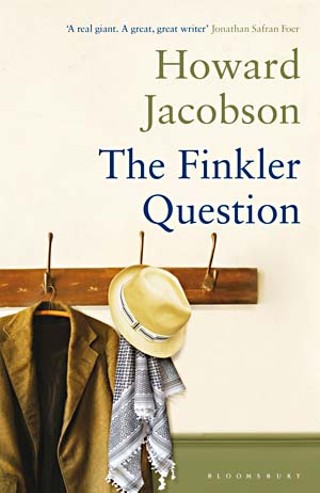
Finnish-Estonian writer Sofi Oksanen gives us a riveting, noirish, and suspenseful tale with Purge (Black Cat), set in 1992 post-Soviet Russia and involving an escapee from the sex trade who is found mysteriously collapsed in the yard of an elderly Estonian woman. On a very personal level, the story traces the generational dehumanization of the Stalin era carried to its current manifestations.
On the nonfiction front, my favorite read was John Heilemann and Mark Halperin's lively account of the 2008 presidential race, Game Change (HarperCollins). Reading like a novel, its best sections deal with the Obama/Clinton battle in the primaries and a frightening look at Sarah Palin.
Patti Smith's fascinating and National Book Award-winning memoir, Just Kids, tells of her relationship with photographer Robert Mapplethorpe against the backdrop of bohemian New York of the late 1960s to 1970s.
Honorable Mention: Martin Solares' impressive debut novel, The Black Minutes (Black Cat), depicting corruption in provincial Mexico. – Jay Trachtenberg
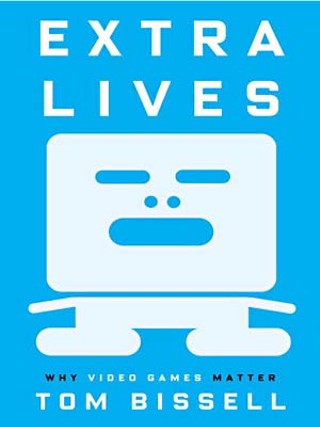
The genius of David Mitchell is obvious to anyone who reads Cloud Atlas. In that novel, Mitchell's ability to dance from one voice to another while jumping from chapters within chapters was breathtaking, like watching an acrobat. With The Thousand Autumns of Jacob de Zoet (Random House), Mitchell puts his feet firmly on the ground of 19th century Japan: a world that is made unfailingly familiar thanks to Mitchell's masterly knack for fully comprehending time, place, and character. Instead of Atlas' flash, The Thousand Autumns shows the confidence of a writer at the top of his game. The story motors like a fast-paced page-turner, but the people you meet and the places they go are painted so realistically that it can read like a history textbook. And the best textbook you've ever read.
Honorable mention goes to Tom Bissell's Extra Lives: Why Video Games Matter (Pantheon). Outside of a few blog posts and keynote speeches, gaming connoisseurs have avoided thoughtful, grand-scale criticism for quick reviews and snarky articles on industry trends. Bissell takes the high road and assumes that games are art, dissecting them accordingly. It's far from a perfect read, but by the end you realize how much more reading is necessary to understand this misunderstood art form. – James Renovitch
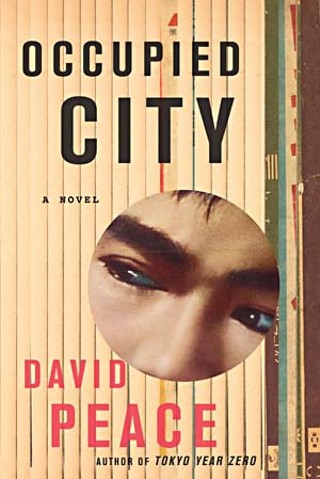
It's a cliché to say that my favorite book of the year is the one I am currently reading, but with 50 pages to go that minor honor goes to David Peace's Occupied City (Knopf). Peace is the heir-apparent to James Ellroy, a novelist inspired by real crimes to dissect whole cultures. In the year that his quartet of books eviscerating 1970's England made it to U.S. screens as the Red Riding trilogy, his second book set in post-World War II Japan is part tone poem, part history lesson.
It never hurts to learn from a book, and for the Beltway academic in me, Jimmy Carter's long and long-overdue White House Diary (Farrar, Straus and Giroux) is a vital account of the 20th century's most highly debated presidency. Former health industry PR manipulator Wendell Potter deserves a medal for his confessional Deadly Spin (Bloomsbury), while Larry Cuban undertook the first meaningful academic overview of the Austin Independent School District in As Good As It Gets (Harvard University Press).
If that all sounds a little gloomy, I turned to Marvel Comics for light(ish) relief. For the last five years Marvel has put its heroes through the ringer, killing Captain America, turning Iron Man into a high tech J. Edgar Hoover, and allowing Spider-Man's nemesis the Green Goblin to establish his own Dark Avengers. 2010 was the year when the status quo returned. Industry icon Brian Michael Bendis scripted the heroes' last stand as the fake Avengers attacked Asgard in Siege, while Brian Reed made headlines in Siege: Embedded as hangdog reporter Ben Urich covered the battle between gods and mortals. Yet it was X-Men: Second Coming that set the bar for comic crossovers: complex, tragic, and, in a medium in which death is an inconvenience, truly moving. – Richard Whittaker





